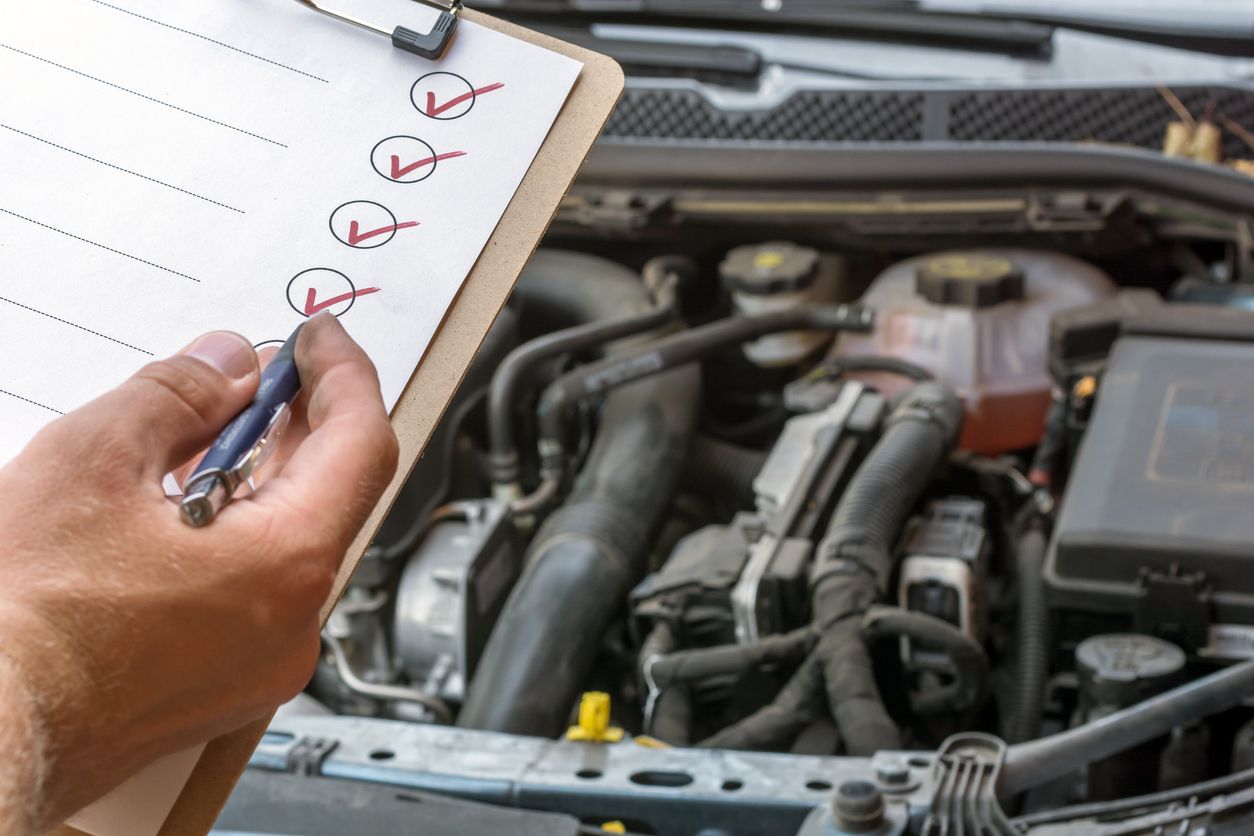All Categories
Featured
Your car's engine is one of the most complex systems in your auto, and every part plays an essential role in ensuring it runs efficiently. Among these, the timing belt is just one of one of the most crucial but usually forgot components of your engine. Liable for synchronizing the rotation of the crankshaft and camshaft, the timing belt guarantees the engine's valves close and open at the correct times during the burning process. It can result in severe engine damages if the timing belt stops working. Right here's why timing belt substitute is vital for your lorry's performance and durability.
What Is a Timing Belt? The timing belt is a long, toothed rubber or composite belt that connects the crankshaft to the camshaft(s) in an inner combustion engine. Its task is to maintain the engine's shutoffs and pistons in sync, guaranteeing the engine runs effectively. The timing belt additionally manages other essential engine functions like the water pump and the power guiding pump, relying on the vehicle.
![]()
Without the proper timing, the engine's valves and pistons can collide, leading to extensive and costly damages. For that reason, changing the timing belt on time is just one of the most effective ways to guarantee your engine runs at its finest and stop pricey repair work.
Why Timing Belt Replacement Matters. Avoiding Catastrophic Engine Damage: One of the most substantial risk of not changing a worn timing belt is engine failure. If the timing belt breaks while the engine is running, the camshaft and crankshaft can become misaligned, causing the pistons and valves to clash. This can cause bent shutoffs, damaged pistons, and even a ruined engine. Replacing the timing belt at the advised intervals is the finest method to avoid such devastating damages, conserving you from the tension and high price of engine repairs or substitute.
![]()
Maintaining Engine Effectiveness: A timing belt that remains in great problem ensures that all engine components operate in excellent harmony. If the timing belt is put on or stretched, it can create the engine to shed power, experience rough idling, or struggle to begin. By changing the timing belt consistently, you can keep your engine performing at peak performance, which aids maintain ideal gas economic climate and performance.
Preventing Unexpected Breakdowns: A damaged timing belt can trigger your engine to stop abruptly, potentially leaving you stranded in the middle of a journey. By replacing your timing belt on time, you decrease the danger of abrupt breakdowns that might leave you in a inconvenient or hazardous scenario. Regular maintenance lowers the possibilities of experiencing these sort of disruptions, helping you stay on the road much longer without stressing regarding your engine stopping working.
Cost-Effective Maintenance: Timing belt replacement is much cheaper than fixing or changing an engine that's been harmed as a result of a timing belt failing. While the price of changing the timing belt may differ depending upon your car and its area, it is even more economical than the costs connected with significant engine repair services or substitutes. Replacing your timing belt at the suggested periods can conserve you a significant amount of money over the future by stopping damage to your engine.
When Should You Change Your Timing Belt? The timing belt does not last forever, and a lot of manufacturers advise changing it in between 60,000 and 100,000 miles. The specific timing depends on your car's make, version, and driving problems, so it's vital to examine your owner's manual for particular support.
Signs that your timing belt might require attention include unusual engine noises (such as a high-pitched whining or ticking sound), difficulty starting the engine, or a reduction in engine efficiency. If you observe any of these signs, it's essential to have the timing belt examined by a professional auto mechanic.
![]()
Conclusion. The timing belt is a tiny but crucial component of your engine, and routine substitute is key to keeping your car's performance and avoiding costly damage. By remaining on top of timing belt upkeep, you'll ensure your engine operates efficiently, stay clear of unforeseen break downs, and secure your auto from major repair services. Keep an eye on your vehicle's recommended timing belt replacement timetable, and constantly seek advice from a trusted auto mechanic to maintain your engine running efficiently for years to come.
What Is a Timing Belt? The timing belt is a long, toothed rubber or composite belt that connects the crankshaft to the camshaft(s) in an inner combustion engine. Its task is to maintain the engine's shutoffs and pistons in sync, guaranteeing the engine runs effectively. The timing belt additionally manages other essential engine functions like the water pump and the power guiding pump, relying on the vehicle.

Without the proper timing, the engine's valves and pistons can collide, leading to extensive and costly damages. For that reason, changing the timing belt on time is just one of the most effective ways to guarantee your engine runs at its finest and stop pricey repair work.
Why Timing Belt Replacement Matters. Avoiding Catastrophic Engine Damage: One of the most substantial risk of not changing a worn timing belt is engine failure. If the timing belt breaks while the engine is running, the camshaft and crankshaft can become misaligned, causing the pistons and valves to clash. This can cause bent shutoffs, damaged pistons, and even a ruined engine. Replacing the timing belt at the advised intervals is the finest method to avoid such devastating damages, conserving you from the tension and high price of engine repairs or substitute.

Maintaining Engine Effectiveness: A timing belt that remains in great problem ensures that all engine components operate in excellent harmony. If the timing belt is put on or stretched, it can create the engine to shed power, experience rough idling, or struggle to begin. By changing the timing belt consistently, you can keep your engine performing at peak performance, which aids maintain ideal gas economic climate and performance.
Preventing Unexpected Breakdowns: A damaged timing belt can trigger your engine to stop abruptly, potentially leaving you stranded in the middle of a journey. By replacing your timing belt on time, you decrease the danger of abrupt breakdowns that might leave you in a inconvenient or hazardous scenario. Regular maintenance lowers the possibilities of experiencing these sort of disruptions, helping you stay on the road much longer without stressing regarding your engine stopping working.
Cost-Effective Maintenance: Timing belt replacement is much cheaper than fixing or changing an engine that's been harmed as a result of a timing belt failing. While the price of changing the timing belt may differ depending upon your car and its area, it is even more economical than the costs connected with significant engine repair services or substitutes. Replacing your timing belt at the suggested periods can conserve you a significant amount of money over the future by stopping damage to your engine.
When Should You Change Your Timing Belt? The timing belt does not last forever, and a lot of manufacturers advise changing it in between 60,000 and 100,000 miles. The specific timing depends on your car's make, version, and driving problems, so it's vital to examine your owner's manual for particular support.
Signs that your timing belt might require attention include unusual engine noises (such as a high-pitched whining or ticking sound), difficulty starting the engine, or a reduction in engine efficiency. If you observe any of these signs, it's essential to have the timing belt examined by a professional auto mechanic.

Conclusion. The timing belt is a tiny but crucial component of your engine, and routine substitute is key to keeping your car's performance and avoiding costly damage. By remaining on top of timing belt upkeep, you'll ensure your engine operates efficiently, stay clear of unforeseen break downs, and secure your auto from major repair services. Keep an eye on your vehicle's recommended timing belt replacement timetable, and constantly seek advice from a trusted auto mechanic to maintain your engine running efficiently for years to come.
Latest Posts
The Advantage of NAPA AutoCare? Montclare Auto Repair Delivers the Best Service
Published Apr 19, 25
2 min read
Financial Security for Every Stage of Life
Published Apr 18, 25
1 min read
Maximize Your Savings with Love My Cooperative Credit Union Incentives
Published Apr 18, 25
1 min read
More
Latest Posts
The Advantage of NAPA AutoCare? Montclare Auto Repair Delivers the Best Service
Published Apr 19, 25
2 min read
Financial Security for Every Stage of Life
Published Apr 18, 25
1 min read
Maximize Your Savings with Love My Cooperative Credit Union Incentives
Published Apr 18, 25
1 min read